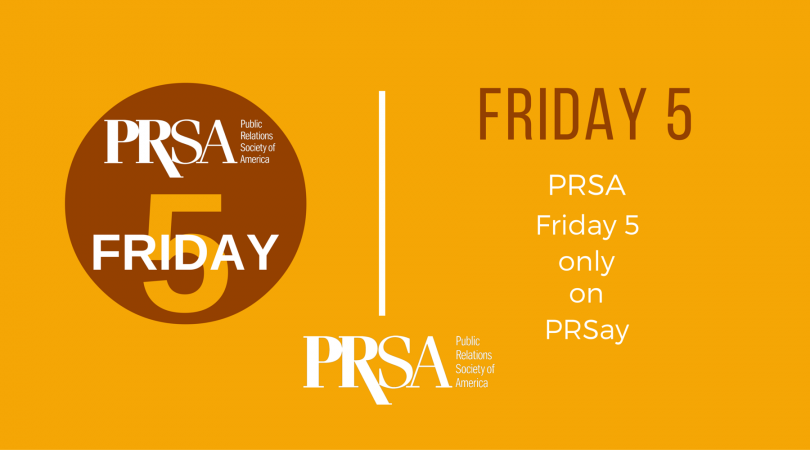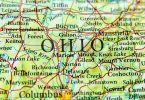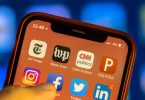Originally used as a simple way to curate common subject on social networks, Hashtags have become so ingrained in our popular culture that we now often hear people using them conversationally to offset a topic or make a point. Take this popular skit from Late Night with Jimmy Fallon as an example of that. It seems that we cannot escape their reach. While watching television, hashtags appear on the screen every few minutes to encourage social sharing while brands use specific hashtags to promote their products and services. However, they do come with their down side; social media users can turn creative hashtags into a nightmare for public relations professionals and social media managers.
In this week’s PRSA “Friday Five”– an analysis of the week’s biggest public relations and business news and commentary – we look at why certain hashtags fail, how some brands are using hashtags for e-commerce, and what happens when hashtags get “hijacked.” We will also look at how hashtags are used on social media during national crises.
Why Industry Hashtags #FAIL (The Daily Beast)
In the wake of the #MYNYPD hashtag backlash, it is apparent that brands must seriously consider how users and other audiences might consider “hijacking” their hashtags when in use. The author suggests that using Twitter to solicit a positive response is almost always certain to backfire and will almost always misrepresent public perception of an organization.
“To look at representative #MYNYPD tweets, you’d think the public hated the police. And yet polls regularly demonstrate the contrary: A March 2012 Quinnipiac poll showed 63 percent of New Yorkers approve of the way the NYPD does its job; a January 2013 Q poll showed 70 percent approval; and an April 2013 poll showed 60 percent approval.” Read the entire article at The Daily Beast.
Amazon launches #AmazonCart, a new way to shop without leaving Twitter (The Next Web)
If there’s one true success story of internet era, it’s possibly online shopping. Today, we’re able to shop for anything from home electronics, to tires, to takeout from the comfort of the world wide web. Now brands also have another option for providing a more integrated and seamless shopping experience: Twitter. This week, Amazon launched a groundbreaking new feature called #AmazonCart, which lets you add Amazon products to your online shopping cart through Twitter.
The author explains, “To use the feature, you first have to connect your Twitter and Amazon accounts, which you can do through your social settings. Then, all you have to do is reply with #AmazonCart to any tweet that contains an Amazon product link, and it will be added to your shopping basket.” To learn more about this new e-commerce process, visit the article.
Chicago Transit Authority’s Twitter Q-and-A goes off the rails (Ragan’s PR Daily)
The New York City Police Department wasn’t the only city agency that felt the heat of a Twitter hashtag flaming out of control. The Chicago Transit Authority’s Twitter chat went awry this week as well. Ventra, the Transit Authority’s new payment system, has not been well received by users. This should have been the first indication that a Twitter chat with a #AskVentra hashtag wasn’t exactly a good idea, but the agency moved forward anyway.
While some of tweets used to hijack #AskVentra were angry, others were more humorous. For example:
– @solarpowerspork: #AskVentra what is the air speed velocity of a swallow? Follow up: is it faster than the time between taps in your system?
– @GoldyHawks: What can we do to make you go away? #AskVentra
According to the article, the agency was nonetheless pleased. “Chicago’s CBS 2 reported that CTA managed to find about 100 serious questions mixed in with all the jokes and anger and did its best to respond to those. CTA spokeswoman Tammy Chase called the chat a success, saying the authority was ‘pretty pleased.’” For more outlandish tweets, visit the article.
Brands Watch #BringBackOurGirls From the Sidelines (PR News)
The hashtag #BringBackOurGirls sprung up after the abduction of nearly 300 Nigerian girls by Boko Haram, an Islamist militant group. While the government is trying to find out what they can about the abduction, news outlets and celebrities are taking part in spreading awareness about the delicate situation.
While we’ve seen some brands hijack hashtags for promotion during delicate situations, most brands are rightfully not doing so during this crisis. The author explains why: “In the wake of continual missteps by organizations on social media, brands are treading carefully with the #BringBackOurGirls hashtag and perhaps, thinking first, before acting, so they don’t put themselves in positions where they have to defend themselves.” Read the full article on PR News online.
NFL Commissioner Roger Goodell’s Twitter Chat Sacked by Trolls (Mashable)
The NFL has been successful in elevating the relevance of football through the offseason and year-round. With draft weekend upon us, professional football has been a topic of conversation among sports fans throughout the month of May. To build upon this momentum, the NFL commissioner, Roger Goodell, agreed to host a Twitter chat. Like other high-profile hashtags, the #AskCommish hashtag proved to be a prime opportunity for hijackers.
While some tweets poked fun, others went a different route. The author said “some hit the commish with harder questions that had nothing to do with the NFL draft, but did touch on important issues the league clearly prefers to steer clear of;” like whether gay players would be welcome on an NFL team and the long term benefits of concussions. For more information on the twitter chat, visit the article.







